IVADO’s COVID-19 projects and initiatives
Last updated: May 1st, 2020
Here are summaries of the initiatives that we are supporting within our community in order to act positively on the pandemic, as well as a list of useful links to guide you among the many resources made available by the Quebec digital intelligence ecosystem to deal with the crisis. The call for projects is closed but we will update this page regularly so save it in your favourites!
Digital clinical trials to accelerate the evaluation of colchicine therapy
Jean-Claude Tardif (Director, Research Centre, Montréal Heart Institute and Professor, Université de Montréal) and Frédéric Lesage (Professor, Polytechnique Montréal)
This project, which has already received approval from Health Canada, the Québec Ministry of Health and Social Services and the Montréal Heart Institute’s Ethics Committee, seeks to evaluate a colchicine-based treatment, including its impact on mortality rates and pulmonary complications. The scope of the task (recruitment of a cohort of 6,000 subjects) and the extremely tight deadline (as quickly as possible) for this type of project require the implementation of new digital recruitment and follow-up tools.
Funding amounts:
IVADO: $125,000
scale ai: $100,000
TransMedTech Institute: $50,000
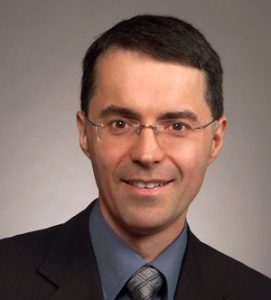
![]()
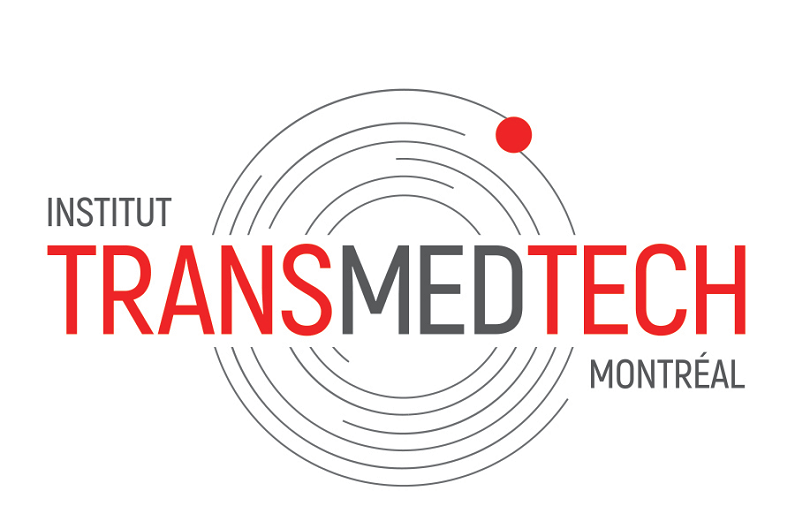
Accelerating the search for a drug for COVID-19
Yoshua Bengio (Scientific Director, Mila and IVADO, and Professor, Université de Montréal) and Mike Tyers (Principal Investigator, IRIC)
In a prerequisite for drug development, this project seeks to identify molecules that may specifically associate with SARS-CoV-2. To do this, researchers from Mila and IRIC will first use neural networks to automatically generate billions of potential molecules. An enhancement algorithm will then be used to select the most promising ones for biological evaluation and possible clinical trials.
Funding amounts:
IVADO: $100,000
scale ai: $125,000
Canada Excellence Research Chair in Data Science for Real-Time Decision-Making: $25,000

![]()

Genomic genetic profiling of SARS-CoV-2 in Québec
Julie Hussin (Assistant Professor, Université de Montréal)
Like other viruses, the virus responsible for COVID-19 mutates and changes over time. These mutations can lead to changes in its spread, in the demographic impact of the disease, or even in the effectiveness of certain treatments. In order to adapt to this reality, this project aims at a real-time genomic analysis of the virus through molecular modelling, focusing primarily on the variants observed in Quebec. The results will provide information for both public health and healthcare, as well as facilitate the work of researchers developing new treatments.
IVADO funding amount: $100,000
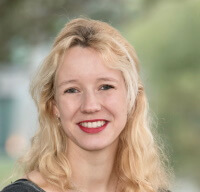
Modelling of animal reservoirs of pathogens
Timothée Poisot (Assistant Professor, Université de Montréal) and Colin Carlson (Visiting Professor, Université de Montréal)
The current COVID-19 pandemic, like others before it, originated in a host animal. However, the ecology, origin and development of these hosts and their viruses remain largely unknown. In order to address this shortcoming, this project aims to model animal populations that act as reservoirs for these pathogens in order to complete knowledge of the disease and to anticipate future resurgences, or outbreaks of new viruses.
IVADO funding amount: $45,000

Developing a new diagnostic tool for COVID-19
Frédéric Leblond (Full Professor, Polytechnique) and Dr. Dominique Trudel (Pathologist, CHUM)
Methods of diagnosing COVID-19 require chemical reagents whose supplies are limited. One consequence is the potentially extensive spread of the virus by asymptomatic individuals. In order to more easily assess whether or not testing is needed, this project proposes to use Raman spectroscopy and artificial-intelligence algorithms to estimate an individual’s total viral load and, if necessary, then determine whether the coronavirus is present. Ultimately, this could make it possible to significantly reduce the number of tests to be carried out, a benefit for remote regions or regions with limited infrastructure.
Funding amounts:
TransMedTech Institute: $33,100
IVADO: $11,000
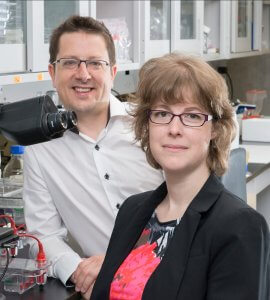

Covid-19 critical-care digital visualization board
Philippe Doyon-Poulin (IVADO Researcher and Assistant Professor, Polytechnique) and Philippe Jouvet (Pediatric Intensivist, CHU Sainte-Justine and Full Clinical Professor, Université de Montréal)
In a pandemic, the number of intensive care inpatients increases rapidly and the management of medical resources is critical to the success of care. The purpose of this project is to develop a digital board to visualize the health status of patients in intensive care units and the allocation of medical resources so as to respond in real time to the needs produced by the COVID-19 crisis. This digital tool will be transferred to the Pediatric Intensive Care Unit at CHU Sainte-Justine and the Intensive Care Unit at the Jewish General Hospital.
IVADO funding amount: $30,600

Identifying the Achilles heel of SARS-CoV
François Major (Principal Investigator, IRIC)
Using an algorithm based on machine-learning techniques, this project seeks to develop a protocol for better understanding the structural components involved in the vital functions of SARS-CoV-2 or any other RNA virus. This technique will make it possible to produce a list of therapeutic targets to counter their replication and proliferation, thus offering new perspectives for the development of drugs to be used in current or future clinical studies.
IVADO funding amount: $17,500

Monitoring the emergence and expansion of SARS-CoV-2 on a large scale
David Stephens (Professor, McGill University) and Luc Villandré (Postdoctoral Researcher, HEC Montréal)
Personalized tracking of COVID-19 cases allows for step-by-step monitoring of the spread of the disease and helps public health officials evaluate the effectiveness of the measures implemented. However, when the number of cases becomes too high, individual follow-up becomes impossible, making it very useful to track the virus at the genetic level. To this end, this project proposes a phylogenetic analysis of the virus, including the ability to link locally sampled cases to each other and to link them to cases in other countries. In this way, it is possible to estimate the virus’s movements and transmission speed. It will then be easier to determine its rate of introduction from outside the country and to assess the proportion of local or community transmission within populations.
IVADO funding amount: $15,000

Interconnecting COVID-19 data
David Ardia (Researcher, IVADO and Assistant Professor, HEC Montréal) and Emanuele Guidotti (PhD Student, Université de Neuchâtel)
Numerous COVID-19-related databases exist, but no virtual platform currently incorporates a significant proportion of these sources. This makes it difficult to do a global analysis of them, and to make connections between this often-medical information and external factors, especially socio-political ones. In this perspective, this international project aims to develop a multifactorial open-source platform, enabling the integration and continuous addition of new information.
IVADO funding amount: $10,000
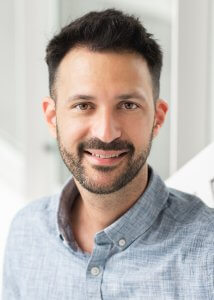
Interactive therapeutic target-prediction portal
Tariq Daouda (Postdoctoral Researcher, Massachusetts General Hospital – Harvard Medical School) and Maude Dumont-Lagacé (Scientific Coordinator, ExCellThera)
The goal of this project is to provide the scientific community with a platform to predict potential targets for a vaccine against COVID-19. This interactive platform uses an algorithm’s ability to predict which parts of the virus will be exposed on the surface of infected cells and thus generates a list of potential targets. This algorithm, developed by Tariq Daouda in the laboratories of Sébastien Lemieux and Claude Perreault, has already been used successfully, enabling the current situation to be approached from a different angle. Offered to researchers through a portal, it will make it possible to accelerate the development of vaccines against COVID-19, but also against other emerging viruses.
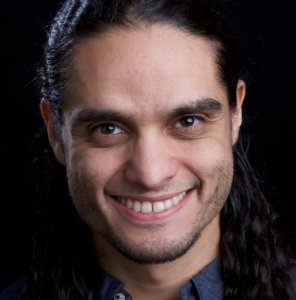
Lightening the healthcare community’s load through dialogue systems
Alexis Smirnov (CTO, Dialogue)
Many telemedicine tasks (such as responding to 811) involve healthcare professionals. This project proposes to set up several standalone telephone assistance solutions to free up these experts who are currently in high demand, whether to answer citizens’ routine questions, do follow-ups, make appointments or help navigate through healthcare facilities.
Funding amount: $500,000

Improved prognosis using chest X-rays
Joseph Paul Cohen (Postdoctoral Researcher, Université de Montréal)
Chester is an existing prototype of a radiology assistant that can recognize certain pneumonia-related characteristics. During the current pandemic, this project aims to improve Chester’s disease predictions with the aim of enhancing the management of patient care. How will this be done? By combining artificial intelligence and image recognition, while widely disseminating a public database of clinical metadata for a large number of COVID-19 cases (as well as SARS and other pneumonia cases).
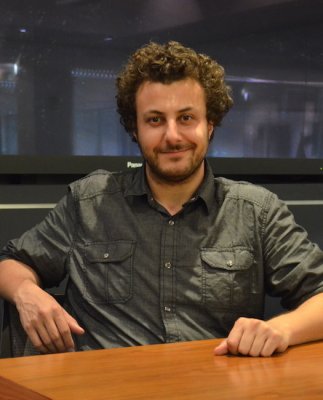
Our IVADO professors are mobilizing
Julie Hussin, Senior Researcher, ICM
“This project aims to analyze the viral sequences at different stages of the evolution of the virus and thus identify indicators associated with the geographical regions where patients have tested positive for COVID-19.”
“Data-efficient deep learning to better model immune response: (…) building an open-source platform leveraging the latest AI technologies to model pathways in the immune system in order to better predict immune response. (…) we work on AI approaches that can contribute to the process of vaccine design(…)”.

Michaël Chassé, Researcher, CHUM
- Creation of a biobank
“The main objective of this Québec-wide infrastructure is to provide researchers with the samples and data they need for their work. This will facilitate the co-ordination of research and support efforts for the development of new disease biomarkers, with a view to creating vaccines and drugs.”
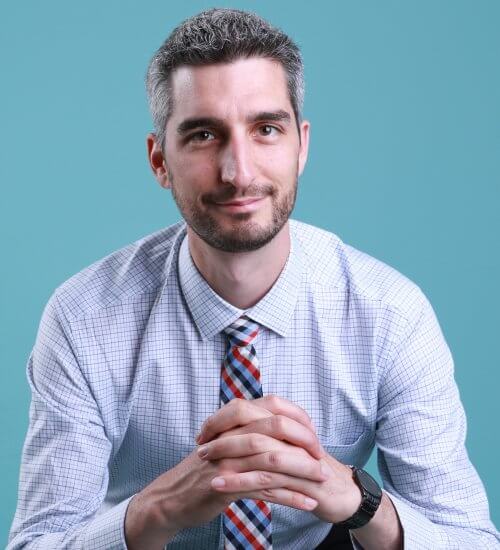
Guy Wolf, Assistant Professor, Université de Montréal
- Omics profiling of COVID-19 progression mechanisms and specific analysis of immune responses in young patients
“This project [will] provide a mechanistic understanding of SARS-CoV-2 virus progression to assess the risk of specific medical profiles and patients, as well as to help identify binding targets for potential antiviral agents and vaccines. (…) An example of an active research question is to understand the apparent resilience of young children to severe infection, which is somewhat atypical for such epidemics.”
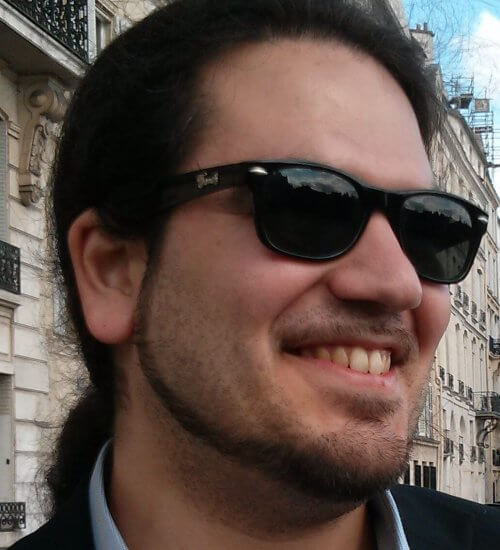
Our industrial members are mobilizing
We would like to congratulate all of our industry members who have rallied together to respond to COVID-19 with donations or other philanthropic actions. Here, we highlight initiatives being advanced by our members that specifically address data science or knowledge mobilization to address the pandemic.
Creation of a new, free COVID-19 screening device with a self-administered questionnaire assessing healthcare workers’ symptoms prior to a client visit. Find out more
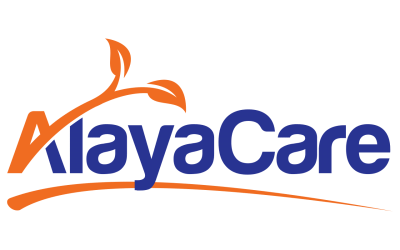
Creation of a free HVAC (heating, ventilation and air conditioning) optimization service in response to COVID-19, using a “zone by zone” approach supported by cloud computing technologies. Find out more
![]()
Establishment of an economic and industrial impact forecasting model that, with the help of private databases, evaluates each economic sector of a city, region, RCM or other, in order to describe the situation and its risk factors. Find out more
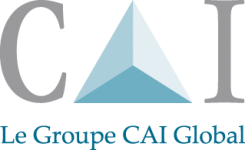
EdLive makes its distance-learning technology available to schools and businesses. Thanks to this initiative and the collaboration of EdLive partners, several thousand students across Québec are taking courses online. Find out more
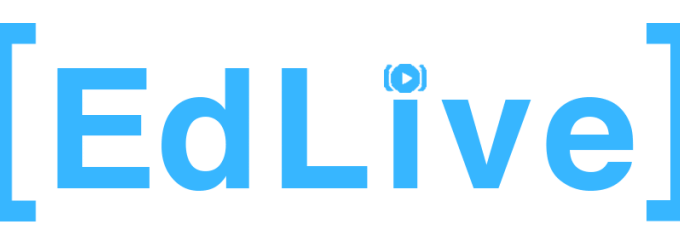
Watson Assistant for citizens is now available free of charge to help governments and health institutions answer common questions about COVID-19. Find out more
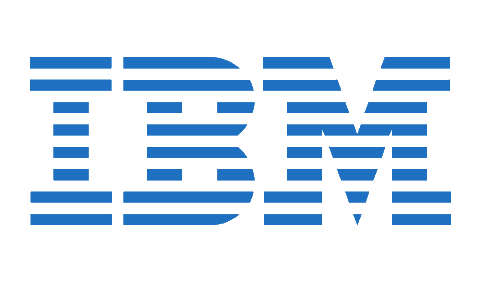
Mental health capsules online. Tips and strategies for better coping with this high-risk period for stress. Find out more
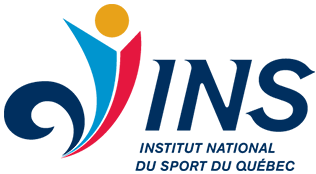
Implementation of a free cybersecurity monitoring service to safeguard the security of companies’ and organizations’ IT equipment during this crisis. Find out more

Launch of a COVID-19 rapid response call by Thales and its artificial intelligence (AI) research centre cortAIx. Find out more
![]()
Free use of the Valital recruitment platform to more quickly find candidates or volunteers in the medical and research fields. Find out more

Are you a member of our academic community?
What funding opportunities can I access?
I am working on a project related to the current crisis: what are the other resources available that I can access?
I want to get involved! Where can I find collaborations, get help or offer my assistance?
Are you a member of our industrial community?
Where can I access COVID-19 resources for businesses?
General resources
- Bonjour Startup Montréal’s resources page
- Startups barometer produced by Mouvement des accélérateurs d’innovation du Québec (MAIN) and updated weekly
Calls for innovation
- Propulsion Québec’s calls for innovation from several organizations
- scale ai
- Fin-ML
- Thales and cortAIx
Current innovations to help you during the crisis
Funding – startups and SMEs
- Fundica
- Investissement Québec’s PACTE program
- CDPQ program for businesses that were profitable before COVID-19
- The Fonds and COVID-19
Mental health
Are you a member of our community involved in an initiative that is not yet described on this page? Help keep this information up to date by writing to us!
- Academic community: decelle@ivado.ca
- Industrial community: please contact your IVADO advisor
- Entrepreneurial community: jfconnolly@ivado.ca
